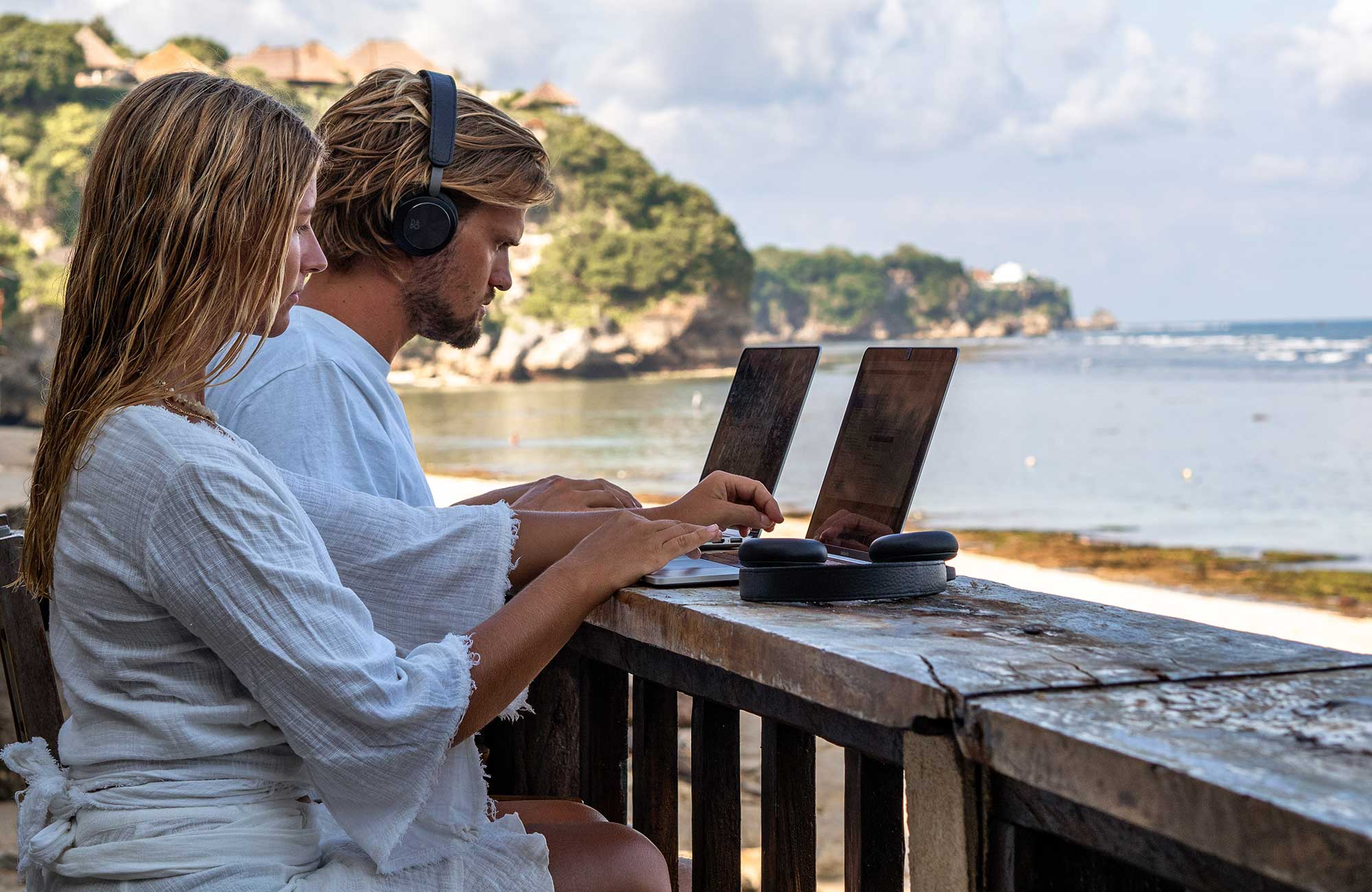Curious on how life could look like as a digital nomad?
Well, what's better than getting the best tips from 2 persons, who knows what they are talking about and who has actually pursued their dream life of becoming digital nomads. We've allied with Maja Grønholdt and Sam Van den Haute who both have been living abroad as digital nomads.
Prepare for a life with "no strings attached"?
The biggest hurdle when going digital nomad, is to take that bold step of leaving your comfort zone, say adios to your safe 9-5 job and give up the apartment you're living in.
It takes guts to do so, and is often the thing that refrain most people from actually going for the life they are dreaming of.
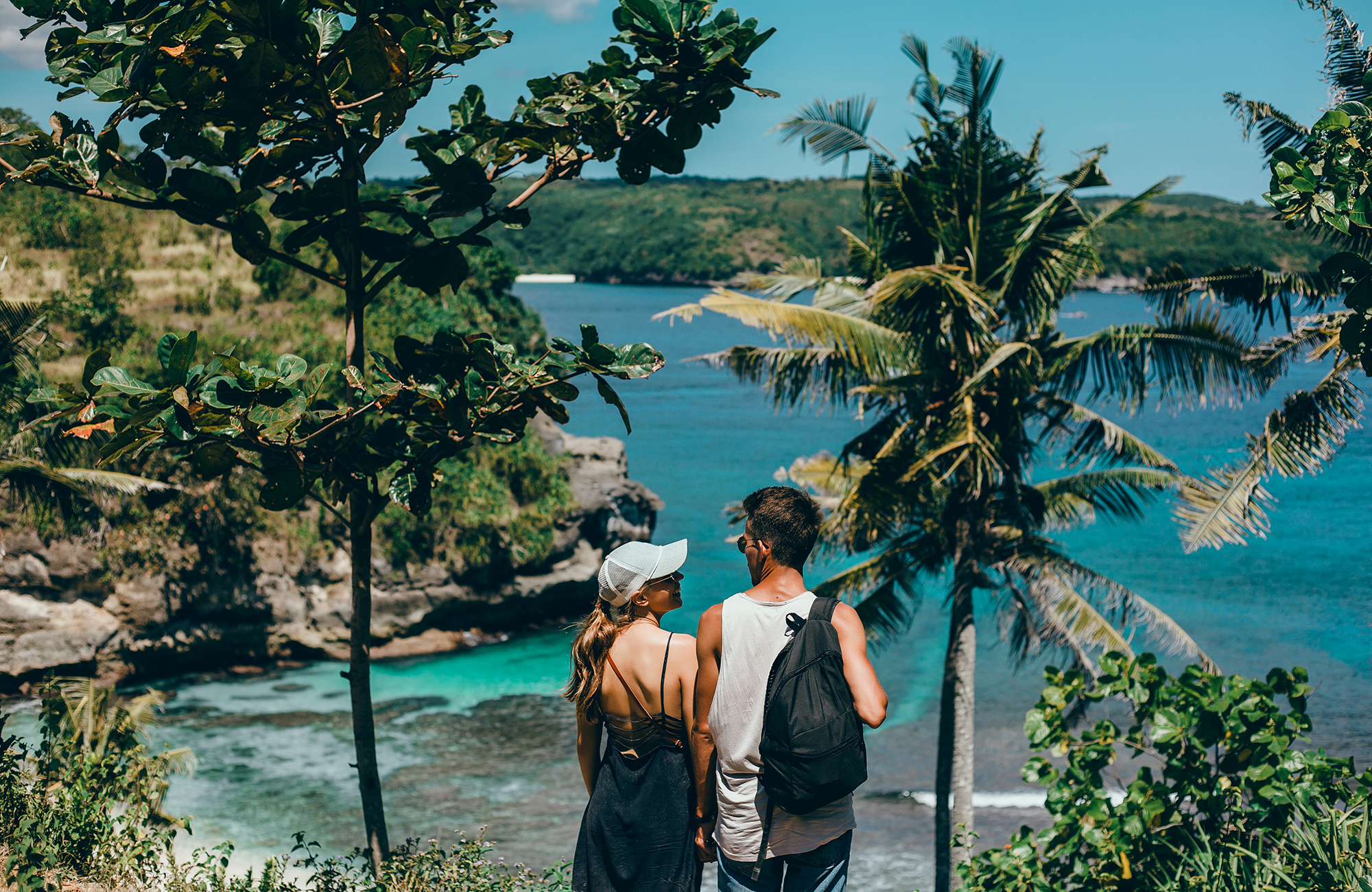
We've been in touch with 2 persons, who actually did take the step into the big unknown, leaving their safe everyday at home by following their passion of living life as a digital nomad abroad.
The Danish adventurer, Maja Grønholdt, explains how she and her boyfriend decided to take that difficult decision and pull the plug from corporate life and safe and stabile everyday at home.
"It was really about freedom for me. I worked as a journalist for a couple of years, and it was really stressfull with both very early and late hours, and I was looking for a job that would make me happier, and allow me to spend more time with my boyfriend and friends. In the begining I didn't actually tell my surroundings what my plan was, but just told them that I had some savings and was going to travel for a bit, but after a few months I realized that this was something I really wanted to do".
She is backed up by the Belgian digital nomad, Sam Van den Haute, who also had to make that tough decision, but had an easier transition into the nomadic lifestyle.
"I rolled into it more natural, I think. I finished High School, and didn't know what to do, so I went to Holland for 1 year. After that year I still didn't know what to do, so I moved to Los Angeles for 2 years, but the issue was that I couldn't actually work there because I didn't have a visa, but luckily my brother has been doing SEO-work for a long time, and he provided me with the basics and then I started experimenting with that. And in the end it just fully grew into my full time job."
How to take the first step and actually get a paid job?
Even though it all sounds lovely to work remote from a tropical place elsewhere in the world, nothing is given from day 1. Either you have to have a great bunch of contacts you know you can help out, or otherwise you need to be super proactive and reach out to people, you might not know.
"Networking is key. I had a huge network due to my job as a journalist, and then it requires that you're open about it and let people know on for instance Facebook and LinkedIn. Honestly, I didn't like it in the begining either, but every time I did a Facebook post about it, we got new clients. It also helped me to tell my friends, because they would their friends and so on, and suddenly you have more clients than ever", Maja tells.
Although that might seem the natural approach, it can also be done in a different way, Sam explains.
"So, I did it differently, since I have mainly been doing affiliate marketing. Basically I sell all kinds of travel related products and get a commision of that. That's one way of doing it, and in order to succeed you need to attract a lot of people to your blog, and that takes a lot of time. It took me almost 3 years to earn an income that I could call a full time job. After that, the jobs came rolling in more steadily, and then it evolved into working with tourism organizations and companies, but of course networking is very important to get you started".
Do you need to save up before going digital nomad?
It's a question much asked. How much do you need, and how do you make the most of your money, especially in the begining, is one of the things you need to have a plan for.
"I did have some savings, and when I didn't have a decent income I did a lot of small jobs in between. In the mean time I started some small websites, that also earned me a bit of money. It is a combination really, but if you want to become a digital nomad you should have a decent amount of savings or at least a side job which you can combine with your digital nomad lifestyle", Sam says.
Unsurprisingly Maja is completely on board with this!
"It's actually one of my best tips. Bring savings! My boyfriend and I left with around 11,000 Euros, which is not a lot, but we created a budget and tried to calculate for how long we could live in South East Asia for that amount of money and since we started working from the begining of our journey, we're actually left with a lot, so we could go on a new adventure again. By bringing money you also make sure, you don't stress out about your financial situation. And in the end, that's not why you should be doing this - you should aim for being in your "zen" when doing this, so bring money!", Maja adds.
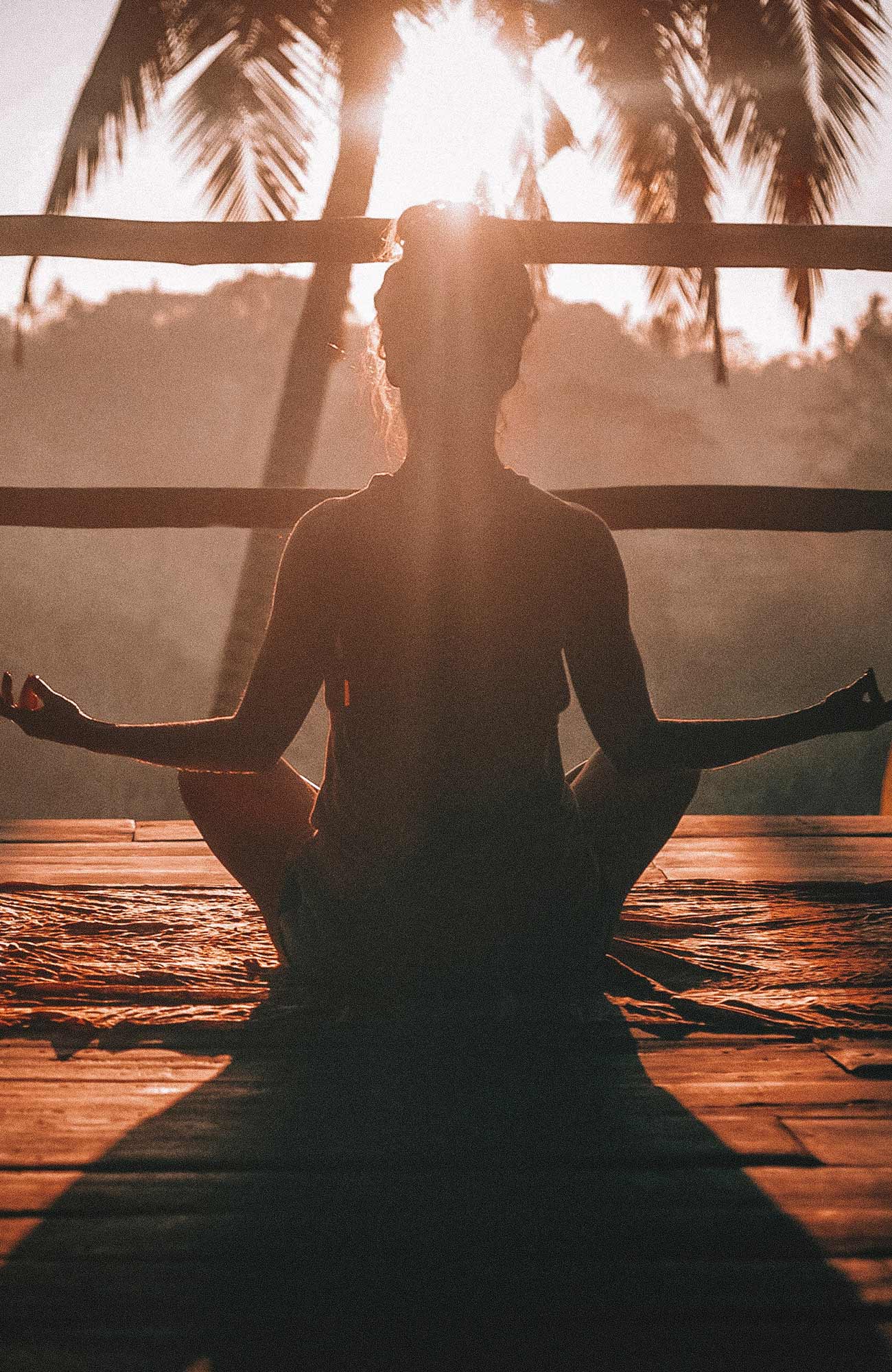
Is it really worth going digital nomad?
It's a tricky question, and in the end it really depends on who you are. It's not all fun and games, and there can be tough times along the way. But when we asked our speakers about this, the good things certainly upweighs the bad. Sam elaborates about that:
"Well, for me it's all about the freedom. You get to choose your own hours, you get to choose where you work from, you get to choose the amount of work you want to put in, and everything combined it's just a dream job. I know that I am very lucky to be able to do this full time, but when that's being said, there's also downsides to this lifestyle. In the begining, you have to find new work which can be stressfull and tiring. And when your constantly unsure about what income you can get, and now the Corona virus makes things a lot more difficult. But for me freedom weighs up all of that - and just thinking about that a few years ago I lived in Philippines, in the future I want to try to live in Madrid or Berlin, and all those things are not possible to do with a regular job. The freedom is really fantastic, I'd have to say."
And he is supported by Maja, who also finds freedom as the key factor for living this lifestyle.
"Freedom is the key. Basically you can work from anywhere in the world you want, you just need a laptop and a good internet connection. The 6 months we've been doing this, we had a base in Bali but also went to Sri Lanka, India, Malaysia, Thailand and lots of other Indonesian islands and you just experience so much in such a short time, and that really feels awesome."
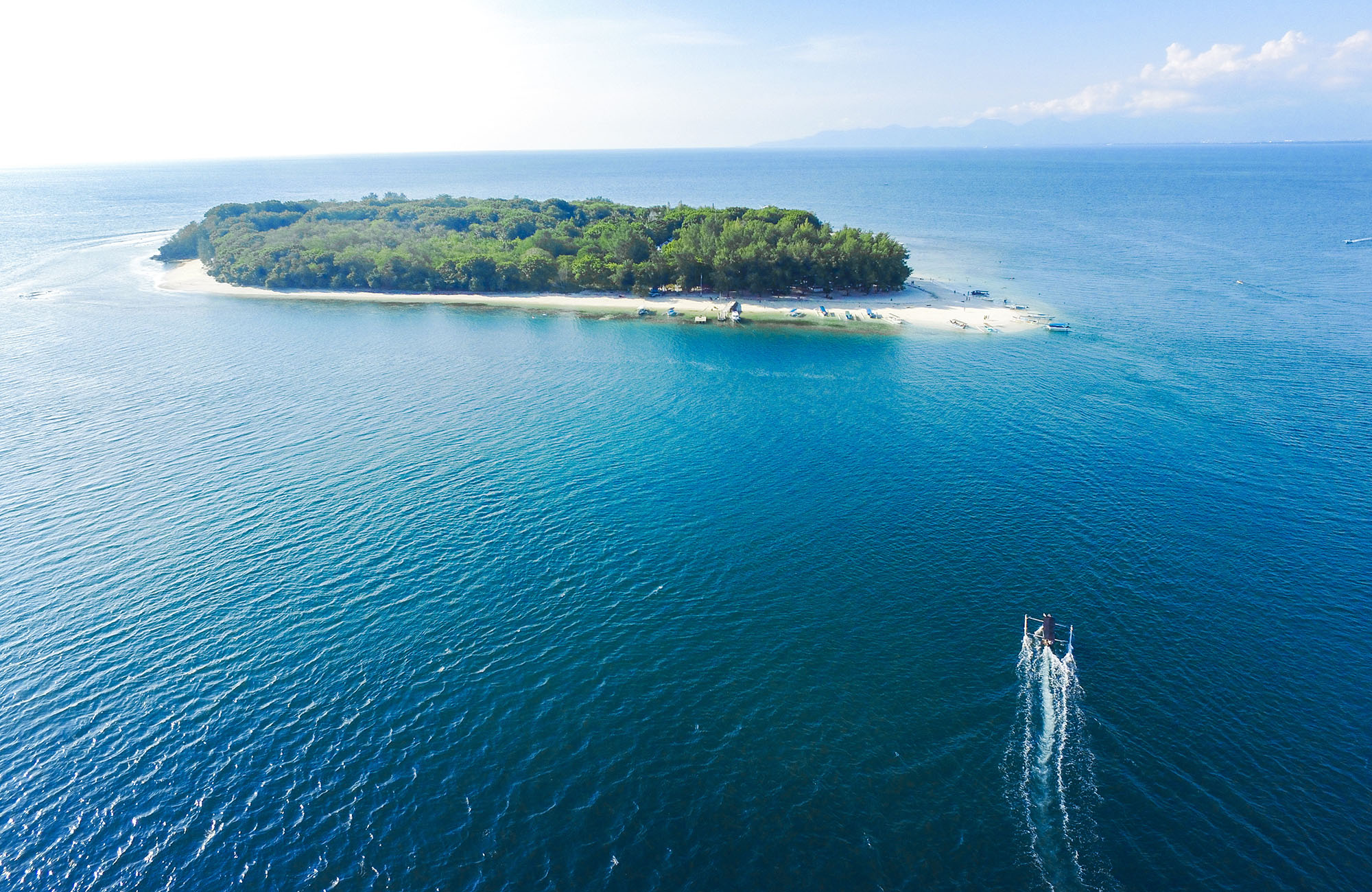
Travel all the time or keep a base somewhere?
So you've decided to go digital nomad. That's all about traveling as much as possible, right? Not necessarily. Keeping a base can actually be beneficial for several reasons according to the 2 experts.
"I like to keep a base, because I feel more productive by doing so. And, without sounding like a brat, I also think that if you travel too much, you end up getting tired of it much sooner," Sam explains.
Maja agrees with Sam's point and elaborates:
"We really enjoy slow traveling, but in the end of last year we traveled a bit too much, and only stayed 1 or 2 nights per place, which is great if you're just traveling around, but if you have to work in between it can get a little bit stressful. So now we try to promise ourselves to slow down a bit, and we already decided to stay in Portugal for 1,5 months, and then we'll see what happens. The thing is, though, that we both have a strong feeling of FOMO, and it's important to realize that you simply can't see everything in one week when you're goal is to be traveling AND working at the same time."
How to get off to a good start, and cope with the inevitably tough times?
As mentioned before, there will be tough times, and you will from time to time question your lifestyle and the bigger purpose of it all. It happens to everyone. It can come when you're lacking freelance jobs for a period, when missing you friends and family or when things abroad just seems to have you fed up.
"There is of course downsides. No doubt. But there are much more upsides in my opinion. Practical stuff such as finding a good internet connection can be tough, especially in India as an example. We spent full days just looking for a proper internet connection. On top of that, I got sick. And when you're sick and have a deadline without internet and your prepaid phone cards are getting ripped same time as your phone is getting hacked, I honestly just wanted to be at home in my bed back in Denmark, but I guess that's just traveling..."
Sam adds to this:
"My biggest hurdle is, that you constantly need to make new friends and connections, while still trying to stay in touch with everyone you know back home. When staying in one place for a long time on your own, you also need some human interaction which can be a bit tiring. I mean, if you get new relations in a certain place, deep inside you might know, that this will be people you might never see again once you leave. Another hurdle is to constantly keep in touch with your home country and visit embassies in order to attain the correct visas when you want to stay a new place for a longer time. Being a European citizen helps out in most places though".

Why be a digital nomad abroad instead of back home?
The simple answer to this is of course to get some new adventures, meet new cultures and get out of your comfort zone. But it also depends on who you are as a person.
"As a person I am very curious and my mood is much better when the sun is shining. I mean, of course I miss my friends a family but I know they will always be there. I get easily bored and am always looking forward to new adventures", Maja concludes before Sam adds to her points.
"I do enjoy the company of my friends and family for sure, but I always have this feeling of wanting to explore new places, discover new things and to see how it is to be living there. Yes, it's tough to keep meeting new people, but that's not nearly as tough as the upsides by living abroad. I guess it differs a lot from person to person, and in the end it's something you need to see for yourself", Sam explains.
But where should you go, you might ask yourself. The world is your playground, but is there places that are better for living a digital nomad lifestyle, and if so, where should you go in order to get proper internet connection, easy visas and to find a hub where you can meet likeminded travellers?
Maja has a clear preference:
"I mostly traveled in South East Asia so far, and I think most digital nomads would say Bali, since everything works so smooth. It's easy to find a fast Wi-Fi connection, it's an easy place to meet new people, beautiful nature, you can go everywhere with your scooter, there's plenty of good food opportunities and it's really safe. And if you're cool with living like a local in homestays, you can live really cheap."
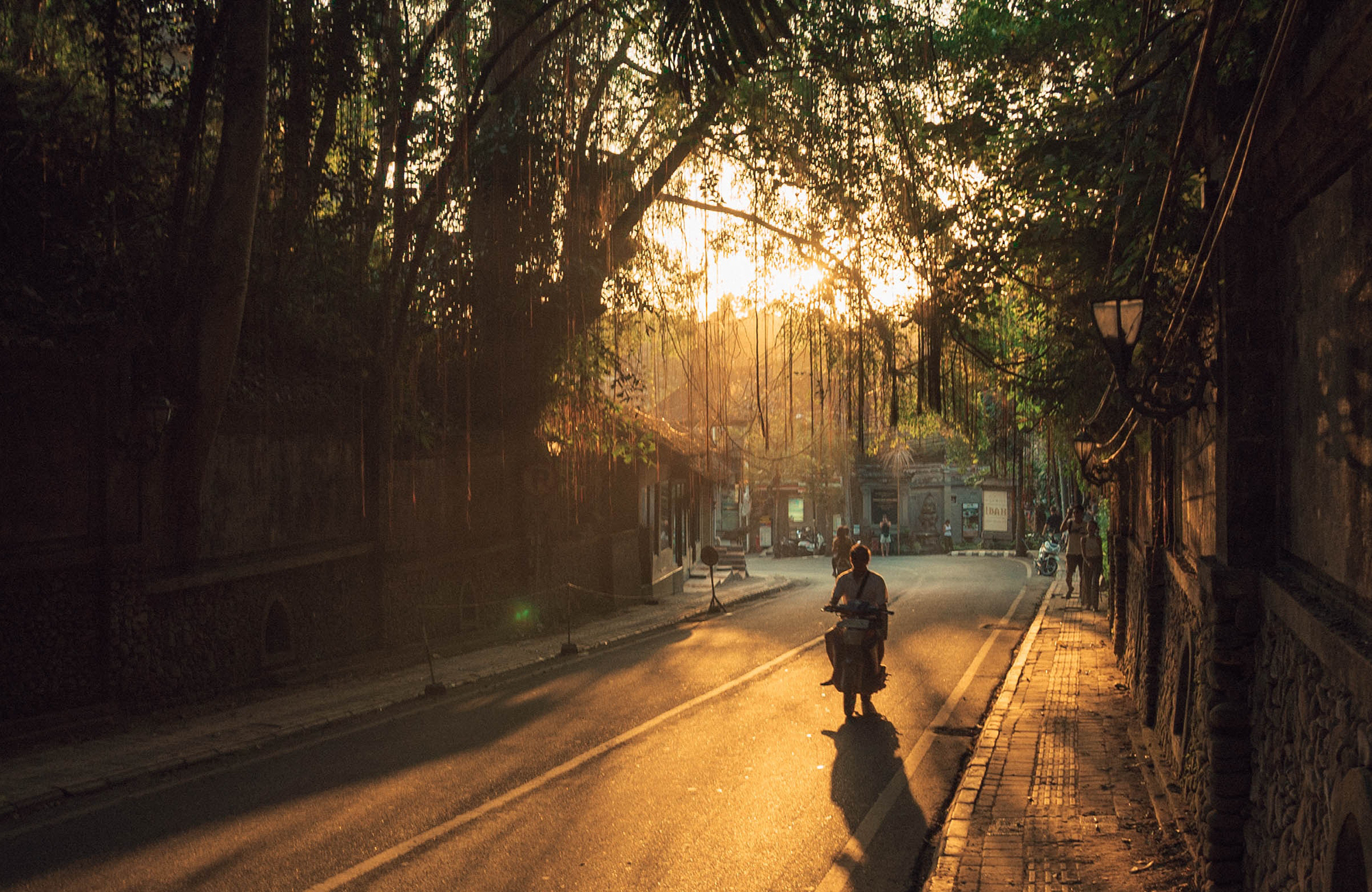
For Sam it's not only Asia that comes to mind, when trying to narrow it down to that one perfect spot.
"Of course Asia is great for digital nomads, but I also want to highlight Australia and New Zealand, where you also get great internet connection, the countries are beautiful and there's a lot to see. Even in the more remote places there's good opportunities to either find a job or work from your laptop. Europe is actually also a great place, that people tend to forget. Especially if you're from Europe since you can move freely between the countries, you don't need visas, internet is great and you can work really easily. Europe is probably my favourite place to be a digital nomad, but I believe that you can find good internet pretty much everywhere, so I wouldn't focus too much on that."
How is everyday life as a digital nomad?
For many of us, it can be hard to imagine how everyday life actually looks like, when you're a digital nomad. Is it full PJ outfit all day or is working in a co-working space all day?
Depends on the goals of the day, if you ask Maja:
"When we're traveling we just do as everyone else, by that I mean trekking, surfing etc, but if we stay for a longer period as we did in Bali for instance, we usually worked 3 days a week full time, and then took time off for fun stuff during the other days. When we're working we usually find a good café or a good homestay with a proper connection. The good thing about a homestay is that you can spend your lunch break in a pool or by surfing. Co-working could be a possibility but we preferred not to spend too much money on that, but it could absolutely be something in the future for us. In general I work less compared to a "normal" job, and that of course also means less money, but that is not the important thing for me."
And where the above could sound like the dream, Sam has a bit different daily routine:
"Overall, I don't have fixed hours. But when I am back in Belgium I tend to work a lot, and then work less when I am abroad, because I really try to enjoy my time when i'm not home. I can easily work from 9am to 9pm when I am at home, but it doesn't feel like working in the same way as if I had a normal job, because I really enjoy doing those small tasks and projects. If I do stay at one place for a longer period, I do work more structured as I need to finish projects. All that is planned into my itinerary, but it's still not like a 9-5 job, it has a lot of freedom but also comes with a lot of responsibility", he concludes.
So, what are the best tips for people who wants to become a digital nomad?
So to sum up, here's 7 key tips, if you're dreaming about a lifestyle as a digital nomad.
1) Bring savings and create a budget! Boring, but really important.
2) Keep that budget! It's easy to overspend on the go, but try not to do so! Use an app like DailyBudget to keep track of all your spendings.
3) Agree with yourself (and your budget) which kind of traveler you are. You're most likely traveling for a long time, so there's probably not much room to increase spendings too often.
4) Make sure you're on top of all the practicalities such as visa and insurance.
5) Don't have too high expectations from the start. You're not gonna be rich immediately.
6) Always make sure to have fun while you're abroad, that's the whole point of becoming a digital nomad, right?
7) Do it your own way! Don't try copy others, as their lifestyle might not be for you. You WILL figure it out eventually.
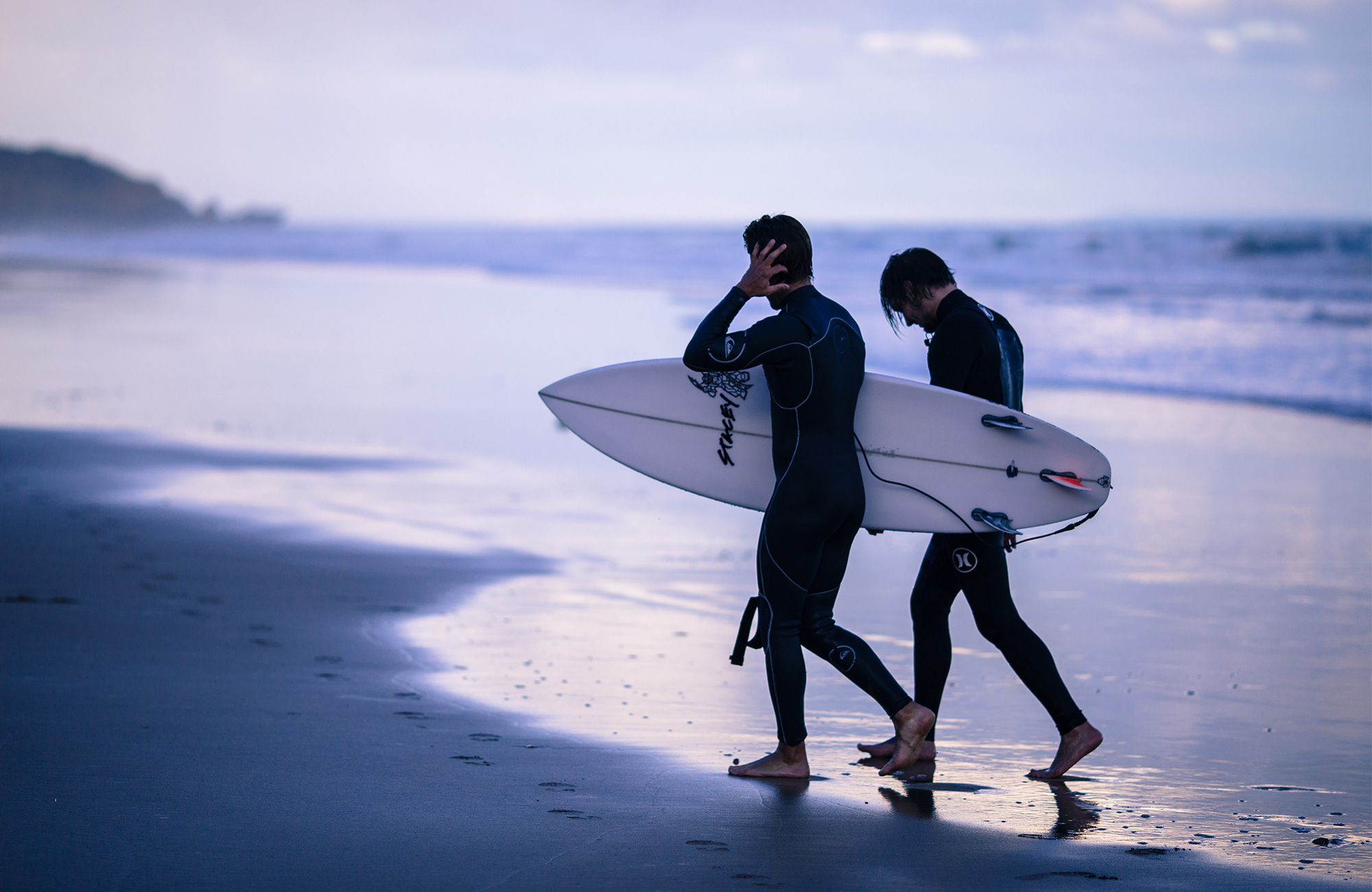
If you want to check out the full travel talk, you can see it here. Simply sign up and you'll get immediate access to the session. It takes less than 30 seconds, we promise.
In case you want to follow Maja and Sam's future adventures, you can find them both on Instagram here:

